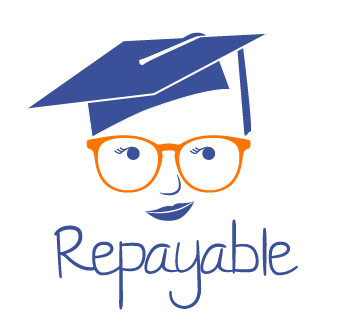If you’re considering student loan forgiveness this post will help you avoid common mistakes that delay your forgiveness or even worse make you ineligible for student loan forgiveness. Estimated read time ~ 5 min
Student loan forgiveness isn’t exactly straightforward. For folks counting on it, student loan forgiveness offers an opportunity to kiss their debt goodbye after years of repayment. Student loan forgiveness takes years, 5-25 years depending on which type of loan forgiveness you’re eligible for. No one wants to work toward loan forgiveness for 10 years only to find out they made a mistake that’s going to delay their forgiveness another couple of years or they made a mistake that makes them completely ineligible for loan forgiveness.
Consolidating your student loans.
Consolidating your student loans to a Direct Consolidation Loan lumps all your individual loans with varying interest rates into one big loan with an interest rate based on the weighted average rate of your individual loans. Student loan consolidation doesn’t save you money or lower your interest rate. If you consolidate your student loans while working toward Public Service Loan Forgiveness (PSLF) your 120 payments will start all over again, none of your previous payments will count. That means you could delay your student loan forgiveness by years.
Avoid consolidating your student loans if you’re working toward PSLF and have already made eligible payments.
Choosing the wrong repayment plan.
Each student loan forgiveness option has specific requirements about which type of repayment plans make a borrower eligible for student loan forgiveness. You want to make sure you’re enrolled in an eligible repayment plan as soon as possible otherwise you delay loan forgiveness and pay more on your debt than you need to.
Look up the specifics of the student loan forgiveness plan you’re interested in on the FSA website. Find the qualifying repayment plan that fits your needs best and make sure you’re enrolled in it.
Failing to resubmit your income information on time.
Student loan forgiveness generally requires a borrower to be enrolled in an income-driven repayment plan of some type. Borrowers must update their income information annually to remain eligible for income-driven repayment. If you fail to keep update that information your repayment will revert back to an alternative repayment plan, costing you extra money and delaying your student loan forgiveness.
Keep your income information updated annually so your income-driven repayment plan doesn’t lapse.
Defaulting on your student loans.
Defaulted loans aren’t eligible for loan forgiveness. Any payments made to rehabilitate your student loan default aren’t eligible for loan forgiveness. That means you will spend more money and delay the time until you can shake off the burden of your debt.
Keep making income-based payments. Your required monthly payment is based on your income and can be as low as $0 each month and still count toward student loan forgiveness.
Refinancing federal student loans.
Refinanced loans are private student loans and aren’t eligible for any type of loan forgiveness. If you think at any point that you may need student loan forgiveness don’t refinance your student loans!
What about if you already have private student loans? Your private loans aren’t eligible for loan forgiveness so it’s best to put any extra monthly payments you can afford toward principal on those student loans. If you qualify you can consider refinancing your private student loans for a lower interest rate.
Have you heard of anyone making any of these mistakes and delaying their student loan forgiveness? Are there any mistakes I missed? Let me know in the comments below or on the Repayable Facebook Page!


Are there any companies you recommend or know about that help with the process of Student Loan Forgiveness?
Hi Gabriel,
Federal student loan forgiveness is totally free. I generally recommend working through your student loan servicer to identify if you’re eligible for loan forgiveness and to direct you to any forms you need to complete. If you ever get any unsolicited phone calls about loan forgiveness, those are scams so be sure to steer clear of them. If you have any specific questions about your loan forgiveness situation I’m happy to help answer them!